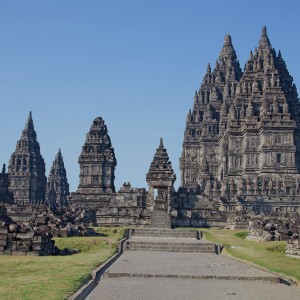 Actress and New Age author Shirley MacLaine has suggested in her new book, What If…, that victims of the Holocaust might be paying for past sins.
Actress and New Age author Shirley MacLaine has suggested in her new book, What If…, that victims of the Holocaust might be paying for past sins.
What if most Holocaust victims were balancing their karma from ages before when they were Roman soldiers putting Christians to death, the Crusaders who murdered millions in the name of Christianity, soldiers with Hannibal, or those who stormed across the Near East with Alexander? The energy of killing is endless and will be experienced by the killer and the killee.
While this may sound like a rare, extreme view of karma, it is not as uncommon as some people think. In certain parts of the world where the dominant religions teach karma, persons with disabilities often face additional challenges because of the beliefs of others. Some people think that they deserve their conditions and should be treated with disgust, since they must be horrible people. Even children can be treated poorly because of this unfounded belief.
Many people in the U.S. have a different interpretation of karma. It’s often applied to this life now, not any supposed past lives. Merriam-Webster defines karma as “the force created by a person’s actions that is believed in Hinduism and Buddhism to determine what that person’s next life will be like” and “the force created by a person’s actions that some people believe causes good or bad things to happen to that person”. The latter is what I mostly hear. But it can still be used to wrongly justify things. There have been instances when innocent persons were wrongly convicted and wasted years of their lives in prison. When it was later proven that someone else had committed the crimes and the innocent prisoners were released, I have heard, “Well, they must have done something else terribly wrong at some point, so this is how they’re paying for it. It’s karma”. This is said with no evidence of such wrongdoing whatsoever. Maybe it makes them sleep better at night because they think they can make sense of it. But that’s no excuse for making something up you don’t actually know to make yourself feel better.
People will argue that this or that person isn’t believing in the real version of karma. Like many other supernatural beliefs, it’s not uniform. Within the two definitions mentioned above, there are different interpretations of each. But whatever the version is, there’s no proof of its metaphysical existence. Life isn’t always fair, people aren’t always treated the way they should be. Much of what is thought of by Americans as  karma can be explained by a naturalistic version of causality. It’s not that you get good things because some force rewards you, it can happen in response from another person. If someone is constantly doing good to others, it’s likely that they will receive positive things in return, in reaction to what they’ve done. The same with bad deeds. But it doesn’t always work out evenly. There are wonderful people who get the short end of the stick throughout life, and there are horrible people who get away with many of their bad deeds. There is no one keeping score and making sure everything evens out. If one believes in the Hindu origins of karma, it can be explained as being returned in different lives, but without any real evidence of this, it’s not fair or rational to assume everyone deserves the hardships or privileges they were born into.
karma can be explained by a naturalistic version of causality. It’s not that you get good things because some force rewards you, it can happen in response from another person. If someone is constantly doing good to others, it’s likely that they will receive positive things in return, in reaction to what they’ve done. The same with bad deeds. But it doesn’t always work out evenly. There are wonderful people who get the short end of the stick throughout life, and there are horrible people who get away with many of their bad deeds. There is no one keeping score and making sure everything evens out. If one believes in the Hindu origins of karma, it can be explained as being returned in different lives, but without any real evidence of this, it’s not fair or rational to assume everyone deserves the hardships or privileges they were born into.
I once believed in karma, but then I realized there’s no proof of its existence. It was just wishful thinking. There’s not even evidence of any being or force to carry it out and keep track of everything. Saying it’s just “energy” or “the universe” is a vague non-explanation. Looking back, I’m not even sure why it was wishful thinking. Even though I feel that I do good in my life, if I thought every single action was counted, it would be an unsettling way to live my life. I later used the term to just mean cause and effect or payback, but I asked myself, “Then why call it karma?” Saying that it’s “karma” implies to others that I feel it’s a supernatural version of those things, which is not what I believe.
Some people have embraced the idea of karma because they feel it’s better than what they formerly believed. I know some people whose partial reason for leaving Christianity was because of the unfounded belief in Heaven and Hell, and that many were seemingly only doing good in order to be rewarded in an afterlife. Some of these former Christians end up being attracted to Buddhism, which they feel is very dissimilar. But, while Buddhism is nontheistic, I don’t feel it’s overall very different when it comes to karma. There are different forms of Buddhism with various beliefs. Some believe in a literal rebirth, others think of a metaphorical version of a new life. I can see the appeal of some aspects of the latter type of Buddhism, but it’s not without its flaws. Whether one believes in a theistic god who will reward or punish everyone in the afterlife, or thinks there is literally karma, it’s not hard to see the similarities of different religious beliefs in that regard. Just as I don’t believe in Heaven and Hell, I don’t buy into karma. In the end, I do good for its own sake and because I have a conscience. I don’t need karma or Hell to keep me in check, and I hope neither do you.
